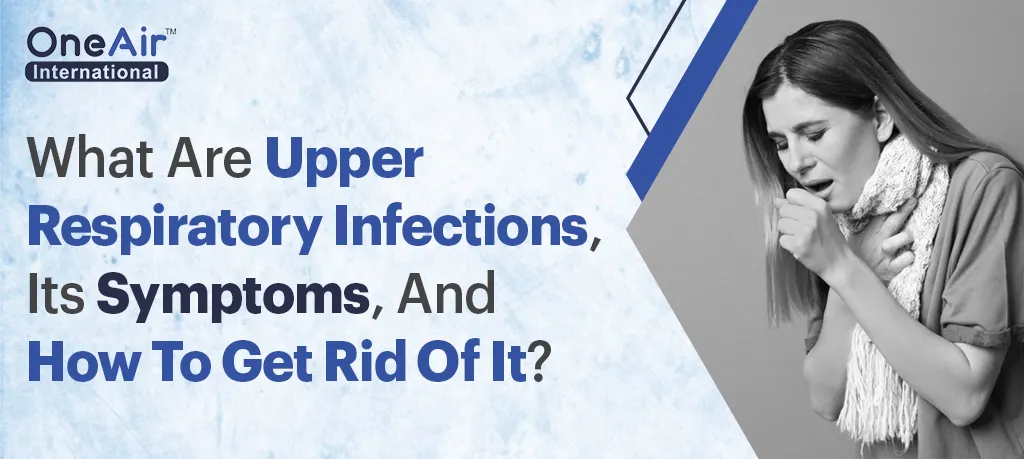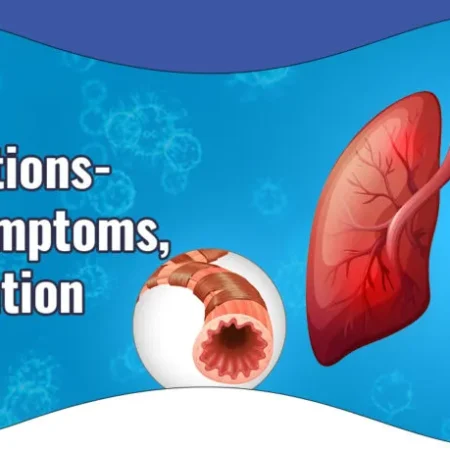
Upper Respiratory Infections (URIs) are common illnesses affecting the nose, throat, and airways. These infections can make you feel under the weather, but the good news is that they are often manageable with simple remedies.
What are Upper Respiratory Infections?
Upper Respiratory Infections, often known as the common cold or flu, are caused by viruses that affect the upper part of the respiratory system. This includes the nose, throat, and sometimes the sinuses and ears. These infections are highly contagious and can spread through tiny droplets when someone with a URI coughs, sneezes, or talks.
Symptoms of Upper Respiratory Infections
Runny or Stuffy Nose: One of the hallmark symptoms of Upper Respiratory Infections (URIs) is a runny or stuffy nose. You may experience nasal congestion, making breathing through your nose challenging.
Sneezing: Frequent sneezing is common in URIs as the body tries to expel irritants and viruses from the nasal passages. Sneezing can contribute to the spread of the virus to others, emphasizing the importance of good respiratory hygiene.
Sore Throat: A scratchy or sore throat often accompanies URIs. This discomfort may result from the inflammation of the throat tissues due to viral infection.
Coughing: Coughing is a natural response to clear the airways of mucus and irritants during a URI. The type of cough can vary, including a dry, hacking cough or one producing phlegm.
Mild Body Aches: Some individuals with URIs may experience mild body aches and pains. These aches are generally systemic and may be associated with the body’s immune response.
Fatigue: Feeling unusually tired or fatigued is a common symptom. The body redirects energy resources to fight the infection, leading to a general sense of weariness.
Low-Grade Fever: URIs may be accompanied by a low-grade fever, although not everyone with a URI will experience this symptom. Fever is the body’s natural response to infection, creating an environment less favorable for virus replication.
Treatment for Upper Respiratory Infections
Rest and Hydration: One of the most vital aspects of recovering from a URI is giving your body the rest it needs. Rest allows your immune system to work more efficiently in fighting off the virus. Additionally, staying hydrated with water, herbal teas, and clear broths helps soothe a sore throat, keeps your respiratory system moist, and aids in flushing out toxins.
Over-the-counter medications: Over-the-counter (OTC) medications can provide relief from specific symptoms. Pain relievers like acetaminophen or ibuprofen can help reduce headaches and fever. Decongestants may help clear a stuffy nose, and cough syrups can ease coughing. However, always consult with a doctor before using OTC medications, especially for children or individuals with underlying health conditions.
Warm Saltwater Gargle: A simple and effective home remedy for a sore throat is a warm saltwater gargle. Mix a teaspoon of salt in a glass of warm water and gargle several times a day. This helps soothe the throat, reduce inflammation, and flush out irritants.
Humidifier Use: Adding moisture to the air with a humidifier can relieve nasal congestion and soothe irritated airways. Make sure to clean the humidifier regularly to prevent the growth of mold and bacteria. This is particularly beneficial during the winter months when indoor air tends to be dry.
Steam Inhalation: Inhaling steam can help loosen mucus and relieve congestion. You can achieve this by leaning over a bowl of hot water and covering your head with a towel. Breathe in the steam for about 10 minutes. Adding a few drops of eucalyptus oil can enhance the therapeutic effects.
Proper Hand Hygiene: Since URIs are often transmitted through respiratory droplets, practicing good hand hygiene is vital. Wash your hands frequently with soap and water for at least 20 seconds, especially after coughing, sneezing, or touching your face. This helps prevent the spread of the virus to others and reduces your risk of reinfection.
Upper Respiratory Infections are common ailments that can be managed with simple yet effective strategies. Remember, if symptoms persist or worsen, it’s important to consult with a doctor.


